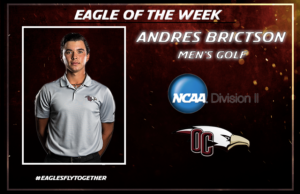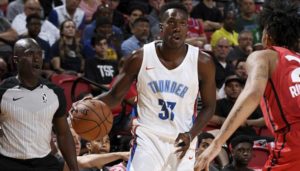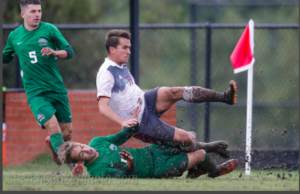When high school athletes dream of playing their sport in college, they imagine big, loud crowds cheering their names and the chance to represent their university. What may come as a surprise before they ever step foot in the locker room, however, are the hundreds of NCAA rules and regulations monitoring everything from what they can drink to who can buy them dinner.
The NCAA, which regulates more than 460,000 athletes at 1,281 different universities across the nation, encourage those interested in playing a college sport to start their eligibility process when they are high school freshmen. Students must take all NCAA core classes, register with their Eligibility Center and remain an amateur athlete.
“High schools are getting better about keeping their student-athletes on track with the eligibility requirement,” Oklahoma Christian University Athletic Compliance Coordinator Mike Farris said. “As for college student-athletes, I wish they would adopt the motto of the NCAA: ‘Ask before you act.’ It is a lot easier to find ways to do the things the right way, rather than ending up with a violation.”
As the athletic compliance coordination, Farris said he monitors the school’s compliance with NCAA rules in recruiting, practice and play restrictions, financial aid and extra benefits for student-athletes. He also provides interpretative answers to questions about NCAA rules from coaches, student-athletes, staff members and occasionally, boosters.
“The rules are very complex and it is easy to have a violation for something that seems harmless enough,” Farris said. “For example, student-athletes can get an occasional meal provided for them from a booster, but there are limits to that and not knowing the limits could cause a violation.”
According to freshman softball player Caitlin Young, her recent recruiting process was fairly simple due to the honesty of her coaches at Oklahoma Christian.
“They made the rules very clear to me,” Young said. “They were thorough about explaining when I could and could not talk to them, when I could sign my letter of intent and when I could come on official and unofficial visits.”
Young said she was surprised to learn that college athletes could not gamble or drink energy drinks and had to be careful about being adopted by church families.
“We have to be careful about accepting gifts and special treatment from others,” Young said. “Without rules, we could be faced with situations that could potentially hurt ourselves, our teammates and even our schools.”
Each NCAA sport also has a variety of rules about how much a team can practice during the offseason and how many hours each day can be spent in practice and workouts.
“If I could change one rule, it would be the fact our coaches cannot be around us or even in the same gym as us during the offseason,” sophomore basketball player Addy Clift said. “I know a lot of the NCAA rules are strict, but I feel they are there to look out for the good of the student-athlete.”
Farris said as the NCAA implements new rules and regulations, the Heartland Conference and Oklahoma Christian coaches are working to make sure student-athletes are kept up to date of any changes.
“Our conference compliance coordinator in the Heartland Conference is an outstanding resource to assist us in understanding the ramifications of various rules and there is a nice camaraderie among compliance professionals in sharing information about various topics,” Farris said. “At OC, our coaches do a great job of asking and more of that is helping make sure we do not have any big missteps very often.”














Be First to Comment